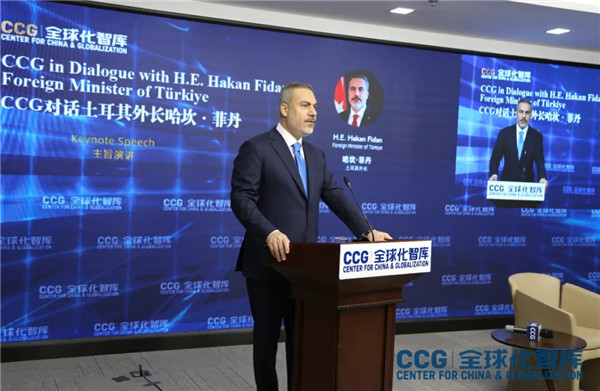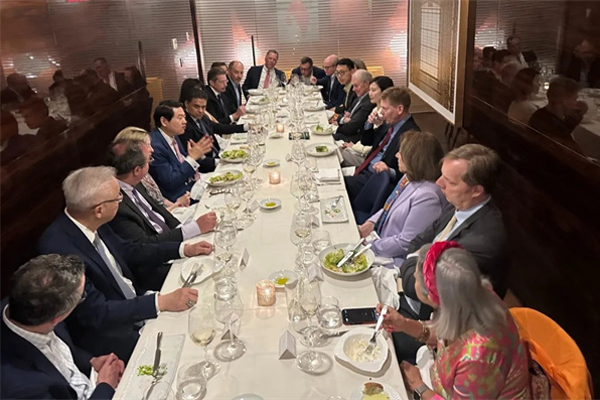CCG delegation visits US to engage US think tanks in discussion on trade
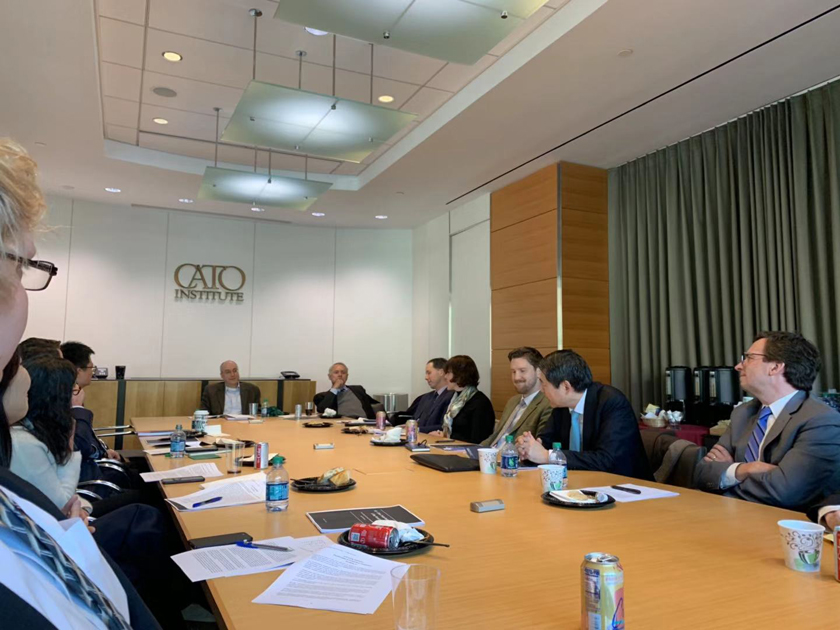
To strengthen bilateral academic and cultural exchange, a CCG delegation paid a visit to the United States in early December 2019.
On December 5, the CCG delegation, led by President Wang Huiyao, participated in a seminar on China-U.S. trade relations and WTO reform at the Cato Institute headquarters in Washington, D.C.
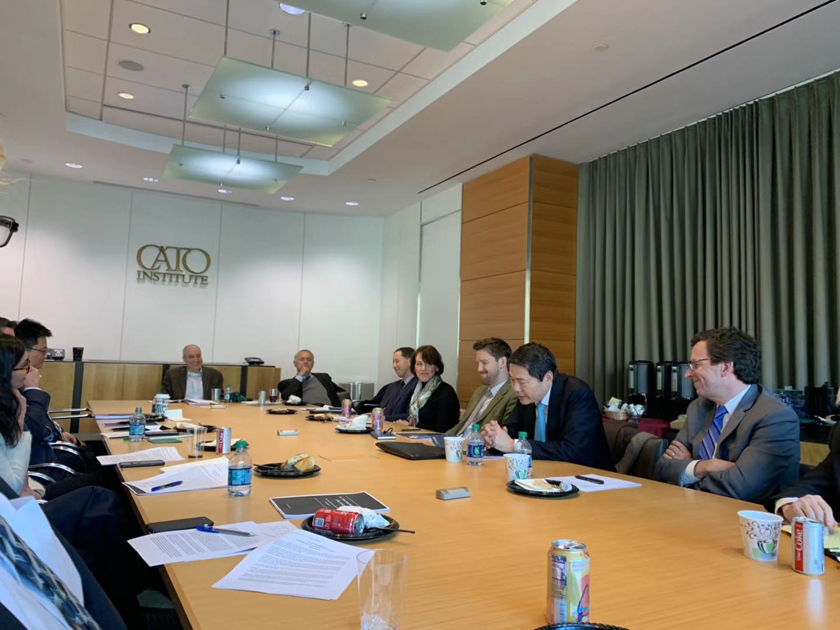
Prominent American scholars in the seminar included Anna Ashton, the director of Business Advisory Services at the US China Business Council; Ryan Ong, director of International Business Policy at National Association of Manufacturers; and Walter Lohman, director of the Heritage Foundation’s Asian Studies Center.
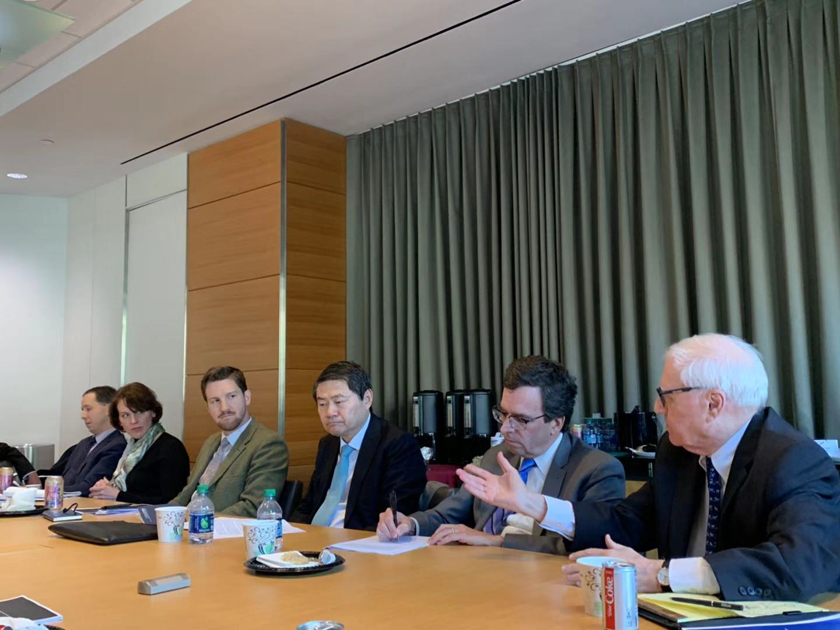
During the discussion, Wang acknowledged that China and the U.S. are facing some challenges in reducing trade tensions, but that China has taken a lot of initiative to seek resolution. For example, from January 1, 2020, China will start enforcing the Foreign Investment Law, which will help to address the issues of concern to global investors including Intellectual Property Rights (IPRs) protection and technological cooperation. The law reflects China’s commitment to further opening its market and improving business operating environment. Meanwhile, China is proactively pushing forward RCEP negotiations and considering joining CPTPP, as a way to contribute to an open world economy.
Regarding the WTO reform, Wang reiterated the need to make immediate progress and noted the U.S. government’s effort to solve the challenges that WTO is facing. Wang believes that one of the solutions is to build a free trade mechanism at a higher level like CPTPP that will have a great potential in the future and provide a new framework for the China-U.S. cooperation that can reduce tensions.
Meanwhile, Wang emphasized that China and the U.S. share broad common interests. If the current tension between the two sides lingers, bilateral relations could fall into a vicious circle. He called on both sides to change their mentality to rebuild mutual trust and wrap up trade negotiations successfully with more initiatives for future cooperation.
On the other hand, American scholars noted at the seminar that negative reports about China have perpetuated some public misperceptions about China, and that some of China’s initiatives like the Foreign Investment Law have not been well recognized in US society at large. Therefore, more dialogue and improve mutual understanding is necessary to prevent wrong judgements.
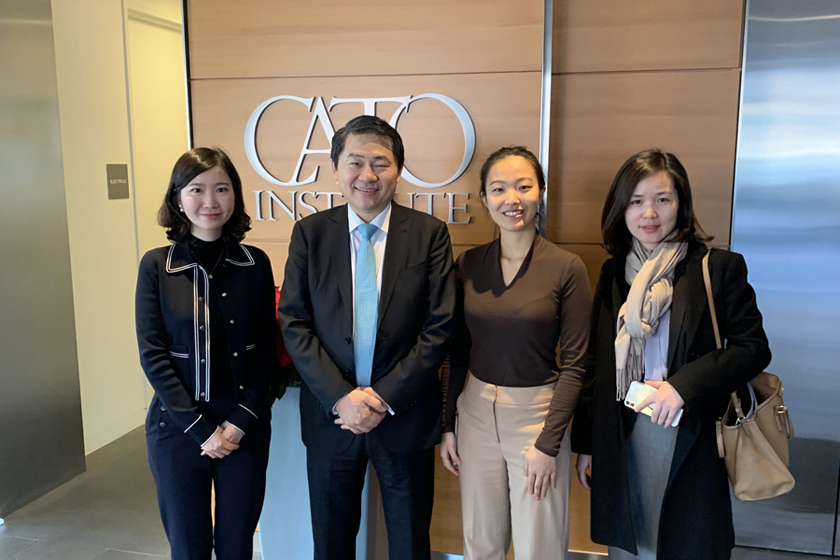
CCG has for some consecutive years conducted such “Track II” Diplomacy visits to the United States to enhance communication with American think tanks about China’s perspectives, especially think tanks that represent conservative groups like the Heritage Foundation and AEI that play a key role in advising the Trump administration. This visit represents another round of CCG efforts to promote constructive dialogue and healthy relations between the two countries.
LocationWashington

